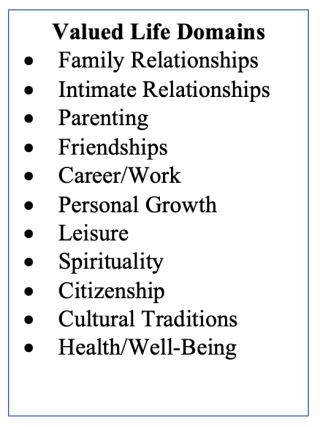Motivation
Who Do You Want to Be?
You can use values as a road map to become your best self.
Posted February 17, 2024 Reviewed by Ray Parker
Key points
- Values define the direction of your life, not specific goals.
- Clear values can help you set goals that will motivate you.
- The more you act in line with your values, the closer you will come to the person you want to be.
Every moment of every day, whether you realize it or not, you decide where to direct your energy. Values are how you want to spend this time: What you want to do with your life and who you want to be.
Unlike goals that can be checked off a list, values represent the direction you want to be headed. For example, if you're traveling east, you never arrive at "east." Similarly, if one of your values is to be honest in relationships, you don't have a single frank conversation with a friend and call it a day; instead, you can always continue to work toward being open and forthcoming in relationships. Getting clear on your values will help you understand the person you are and the person you aspire to be.
How Do Values Relate to Goals?
If values and goals are not the same thing, how do they relate? Your values are the overall direction you want to be headed. Goals are outcomes that can be achieved on the path toward your values.
For example, if one of your values is altruism (i.e., being concerned with the well-being of others), you might choose to pursue a degree in a helping profession (e.g., social work). Once you've graduated, you will have achieved an important goal that will open up more doors as you keep moving toward the value of helping others.
Thus, when thinking about how to live in line with our values, it can be useful to set manageable, concrete goals. If you choose goals that are not in line with your values or consistent with the person you want to be, you won't be motivated. You'll stay stuck.
Does It Always Feel Good to Pursue Values?
Acting in ways that are consistent with your values can sometimes lead to immediate positive emotions. For example, you might feel a surge of pride when you donate clothes to someone who needs them.
However, pursuing values can also be quite uncomfortable in the short term. For instance, when you speak up in a meeting (in line with your value of dedication in your work) or share your true feelings with a new romantic partner (in line with your value of openness in relationships), you may feel nervous. Indeed, the things we care the most about are often the most uncomfortable to pursue; in other words, putting yourself out there in a new relationship is only nerve-wracking because you value relationships.
Despite these immediate negative feelings, engaging in actions that are consistent with your values tends to lead to positive emotions (e.g., pride and fulfillment) in the long term. On the other hand, some actions that feel good in the short term (e.g., using substances) are often not in line with our values and may make you feel worse in the long term.

Identifying Your Values
In order to approach your values, you have to know what they are. Only you can determine what you want your life to be about or who you want to be. Of course, these are big questions, so it can be helpful to ask them about specific parts of your life.
For instance, who do you want to be in an intimate relationship? What do you want your life to be about in terms of career or meaningful work?
There are 11 different domains of life that might be important to you. Some of these parts of life may have jumped out at you immediately; they may be things you know are important to you because you think about them a lot. In contrast, you may not have considered some of the domains. You can use this free worksheet to define your values.
As you complete this worksheet, remember that values are life directions, not specific goals. For instance, instead of writing "get married" as a value for intimate relationships, you should consider the personal qualities you hope to bring to this kind of partnership (e.g., honesty, trust, communication). This exercise can be difficult because we are used to thinking about the world in terms of goals rather than thinking more broadly about values.


